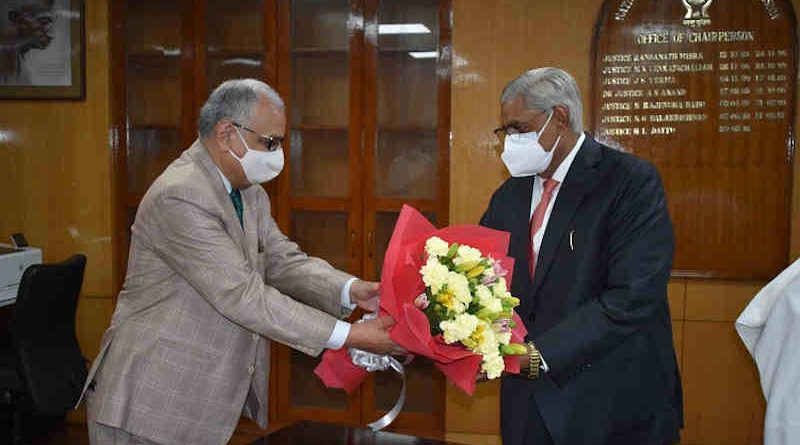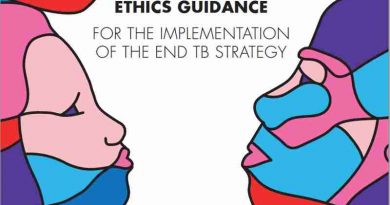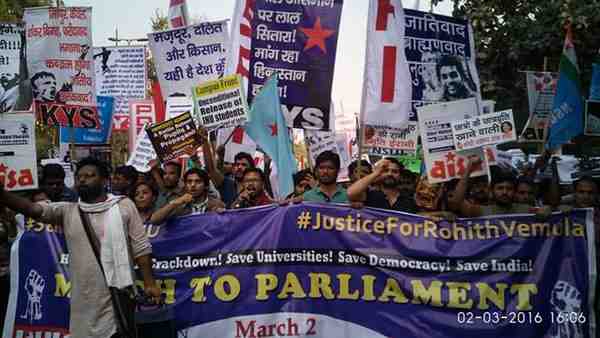Flawed Criminal Justice System in India Causes Human Rights Violations: NHRC

Justice A.K. Mishra, Chairperson, NHRC said that the digitization of documents will help in fair and speedy investigation and trials.
The National Human Rights Commission (NHRC) of India organized the first meeting of the Core Group on Criminal Justice System on Wednesday (August 18) in New Delhi. The Group members expressed serious concerns over the slow pace of reforms in the criminal justice system which impedes the possibility of speedy justice.
It was observed during the meeting that delays in disposal of cases result in human rights violations of both the under-trials, convicted prisoners, and others related to the cases.
Chairing the meeting, Mr. Justice, M.M. Kumar said that policing is important in speedy trials in the criminal justice system. He said that despite so many efforts, including the Supreme Court directions seeking police reforms, the ground reality has not changed much.
He suggested some provisions in the Indian Penal Code (IPC) may be deleted and left for redressal under the law of Torts, as it is in England. In this context, he gave the example of unlawful confinement. He also said that when new legislations are passed, their Impact Assessment Report should be attached with it depicting the estimated expenditure, manpower, and infrastructure.
In this context, he gave an example of cases when Section 138 was added in the Negotiable Instrument Act and cheque bouncing was made an offence. For ensuring expeditious trial, Justice Kumar suggested that there should be one Investigating Officer / one Trial Judge for one consolidated trial on a day-to-day basis.
Making a brief interjection, Justice A.K. Mishra, Chairperson, NHRC said that the digitization of documents will help in fair and speedy investigation and trials. He said that not only the delayed trials but also the implementation of courts’ orders convicting a person takes years, which is a matter of concern.
Earlier, Dr. D.M. Mulay, Member, NHRC said that poor conviction rate is a result of the lack of required police and administrative reforms. He said that there is also a shortage of judges.
Mr. Bimbadhar Pradhan, Secretary General, NHRC setting the agendas for deliberations said that as per an estimate there are about 4.4 crore pending cases across the Supreme Court, High Courts and District Courts. Since March 2020, about 70 lakh more cases have been added to the pending cases. He said that in the criminal justice system, the focus needs to be tilted more towards the victim’s rights and smart policing.
Mr. Santosh Mehra, DG, Investigation, NHRC said that the shortage of police personnel at various police stations in proportion to the population needs to be considered on priority in the interest of ensuring timely justice to the people.
Besides the inaugural session, the meeting was divided into three technical sessions including Police Digitization & Accountability, Specialized Training, Capacity Building & Standardization of Procedures, and Community Policing & Police-Public Relationships.
Some of the important suggestions, among others, emerged during the discussion are as follows:
- Awareness about various laws among police personnel at the lower rank of hierarchy needs to be enhanced;
- Rate of conviction of police officials and non-compliance of law by them resulting into violation of human rights needs to be looked into;
- Increase number of police personnel and police stations in proportion to the number of complaints in a demographic area they have to handle;
- Introduction of social workers and psychologists in the criminal justice system to ensure empathetic proceedings;
- Training programs and training modules to be introduced, especially with respect to gender sensitization, child rights, human rights and rehabilitation of victims of crime;
The NHRC Core Group members, who participated in the discussions included Mr. Justice B K Mishra, former Acting Chairperson, Odisha State Human Rights Commission; Mr. G K Pillai, former Union Home Secretary; Mrs. Meeran Chadha Borwankar, former Director General, Bureau of Police Research & Development (BPR&D); Mr. Rishi Kumar Shukla, former Director, Central Bureau of Investigation; Prof. (Dr.) Geetha Oberoi, Professor, National Judicial Academy, India; Dr. B.T. Kaul, Advocate, Supreme Court of India; Prof. (Dr.) M. Srinivasan, Professor & Head of Department of Criminology, University of Madras; Prof. (Dr.) Vijay Raghavan, Professor at Centre for Criminology and Justice, TISS, Mumbai; and Ms. Shanchobeni P Lotha, Panel lawyer, Wokha District Legal Services Authority, Nagaland.
The ex-officio members of the Core Group including Mr. Prakash, Joint Secretary, Ministry of Home Affairs; Mr. Niraj Kumar Gayagi, Joint Secretary, Ministry of Justice; Mr. Ashok Kumar Jain, Member Secretary, National Legal Services Authority (NALSA) of India; Mr. Neeraj Sinha, Additional DG, BPR&D; Mr. Amit Garg, Joint Director, Sardar Vallabhbhai Patel National Police Academy (SVPNPA); NHRC Registrar (Law), Mr. Surajit Dey; and DIG (I), Mrs Manzil Saini also participated.






